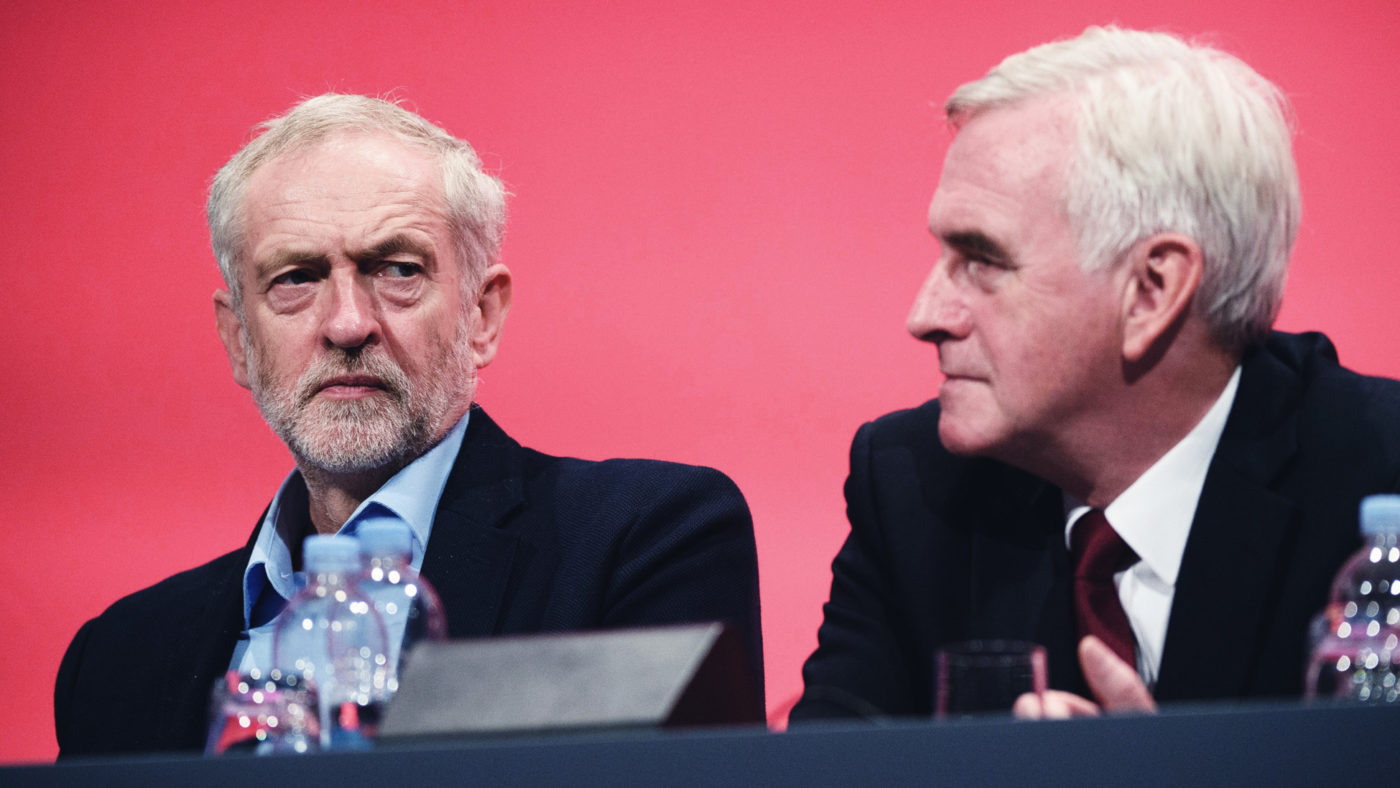‘Common ownership of the means of production’ may be about to stage a comeback. Labour is proposing to set up a working group to review the language of Clause IV of its constitution, which sets out the party’s aims and values. Many activists want to return to the wording first adopted in 1918. Jeremy Corbyn himself has expressed sympathy for this in the past. Party apparatchiks are apparently more cautious, but the fact that this is being discussed at all shows how far Labour has reverted towards old-fashioned socialism.
To recap, the original Clause IV included the pledge ‘to secure for the workers by hand or by brain the full fruits of their industry and the most equitable distribution thereof that may be possible upon the basis of the common ownership of the means of production, distribution and exchange, and the best obtainable system of popular administration and control of each industry or service’.
This was widely seen at the time as the moment that Labour became a ‘Socialist party’. In particular, ‘common ownership’ was understood to mean extensive nationalisation of what later became known as the ‘commanding heights’ of the economy.
Since then, of course, much has changed. Tony Blair updated the language in 1995 to reflect a timeless set of values, rather than commitments to specific policies. The new text now reads ‘The Labour Party is a democratic socialist party. It believes that by the strength of our common endeavour we achieve more than we achieve alone, so as to create for each of us the means to realise our true potential and for all of us a community in which power, wealth and opportunity are in the hands of the many, not the few, where the rights we enjoy reflect the duties we owe, and where we live together, freely, in a spirit of solidarity, tolerance and respect.’
That’s quite a mouthful, and could mean almost anything to anybody. Like ‘motherhood and apple pie’, who could oppose a platform of increased equality of opportunity, or tolerance and respect? With a few tweaks here and there, I might even be willing to sign up myself. Indeed, capitalism already allows for a wide variety of ownership models, without the need for the state to impose one form or another, and free markets allow people to make the most of their potential.
In contrast, the original version of Clause IV deserved to be consigned to the dustbin of history. Surely by now we all know what ‘common ownership’ and ‘popular administration’ have meant in practice? Rather than empowering ‘the many’, socialist economic planning and nationalisation have concentrated power in the hands of the state and a bureaucratic elite. My friend and sometime IEA collaborator, Kristian Niemietz, documents this well in his book, ‘Socialism: the failed idea that never dies’.
A big state also favours whatever special interest groups and swing voters the government of the day is beholden to. There is ‘crony capitalism’, but also ‘crony socialism’. This helps to explain why Labour is planning to increase the power of trade unions, and why the most expensive spending pledge in its 2017 manifesto was the removal of university tuition fees and restoration of maintenance grants (costing at least £11 billion a year).
On the other hand, reverting to the old language of Clause IV would at least be a more accurate reflection of the ideology of the current Labour leadership. This is most obvious in the plans to renationalise the water industry, utilities and the Royal Mail, even at below market value, and to bring railway franchises back under public control.
Existing property rights would also be trampled upon in other ways. Examples include Labour’s plans to force private landlords to sell houses and flats to tenants, and its support for proposals to force companies to issue new equity for transfer to ‘Inclusive Ownership Funds’. John McDonnell does at least now seem to understand that the latter would dilute existing shareholdings (‘fair enough’ he says), but the Shadow Chancellor has yet to explain how landlords would not also lose out under Labour’s plans for a tenants ‘right to buy’.
What’s more, the original Clause IV was not just about ownership. It was also about control. Consistent with this, Labour is now planning to increase government intervention in wage and price setting, and to ensure that the state plays a far bigger role in allocating capital. The amount that the state takes in tax will also inevitably increase.
Clause IV was also about the distribution of income and of wealth. Labour’s policies here seem to be based on the belief that both can only be redistributed, not created, and that equality is best achieved by levelling down.
That said, the 1918 language still seems archaic and far too wordy for the modern age. So, in the spirit of fraternal cooperation, I offer this alternative: ‘Labour believes that the government always knows best’. ‘Property is theft’ has apparently already been taken.
CapX depends on the generosity of its readers. If you value what we do, please consider making a donation.


